Starfield's disappointing intro is Bethesda's weakest, even if we do get a free spaceship
The master of epic openings stumbles.
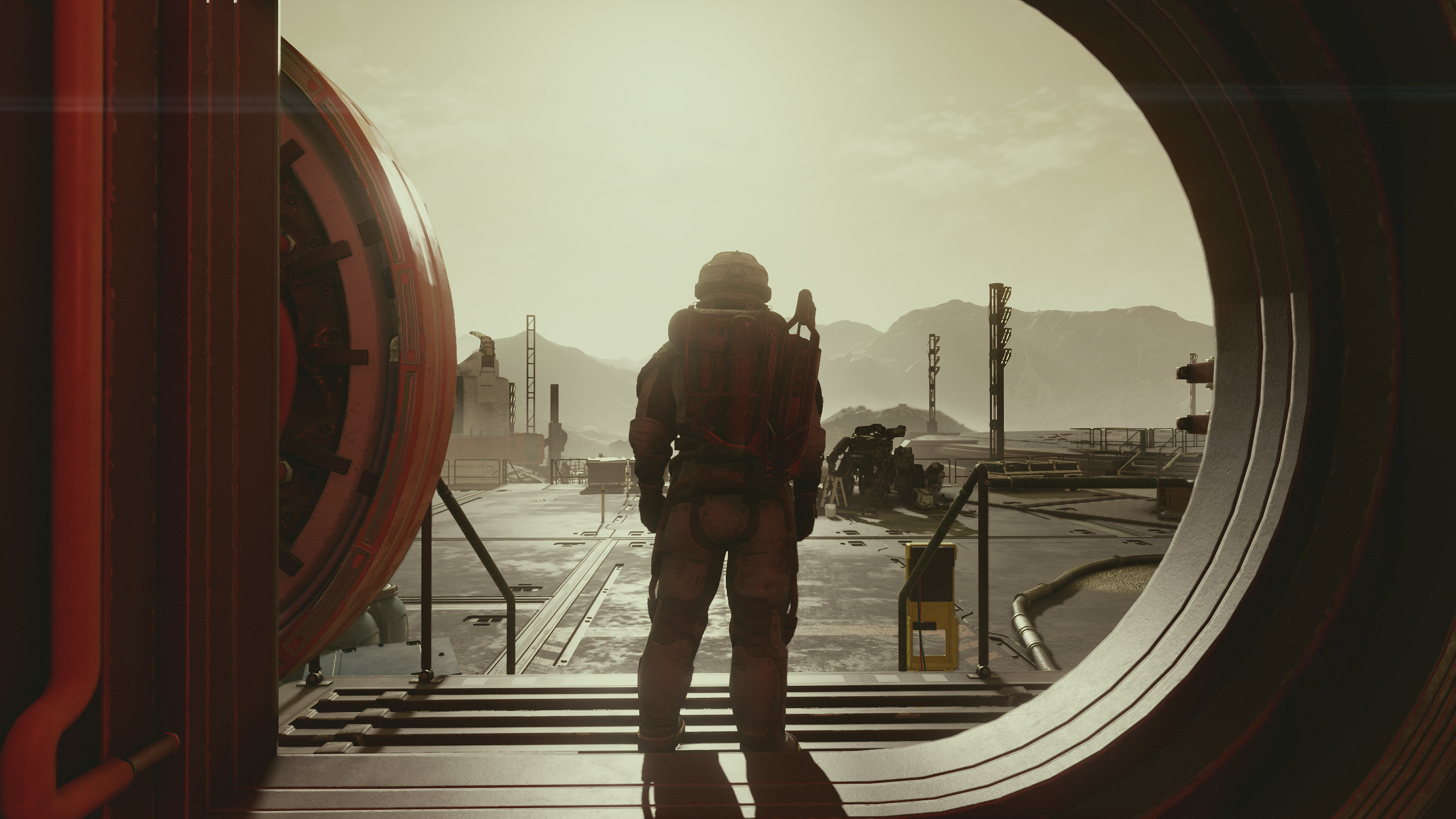
I'm always a bit giddy when I fire up a new Bethesda RPG, not just because it's usually been a good few years since the last one, or due to the anticipation of hundreds of hours of adventures—what I'm looking forward to, at least initially, is the classic epic introduction. Morrowind's understated opening moments were great, but Bethesda really established its formula in Oblivion, and since then it's become a master of first impressions. This, sadly, is not evident in Starfield.
Some of the right ingredients are here: a couple of surprises, a fight, a big obligation and then it finally unleashes you upon the sandbox. But clearly knowing the ingredients isn't enough. Anyone can follow a recipe, but it doesn't mean the end result is going to be delicious. I should know—my cooking is a deadly weapon.
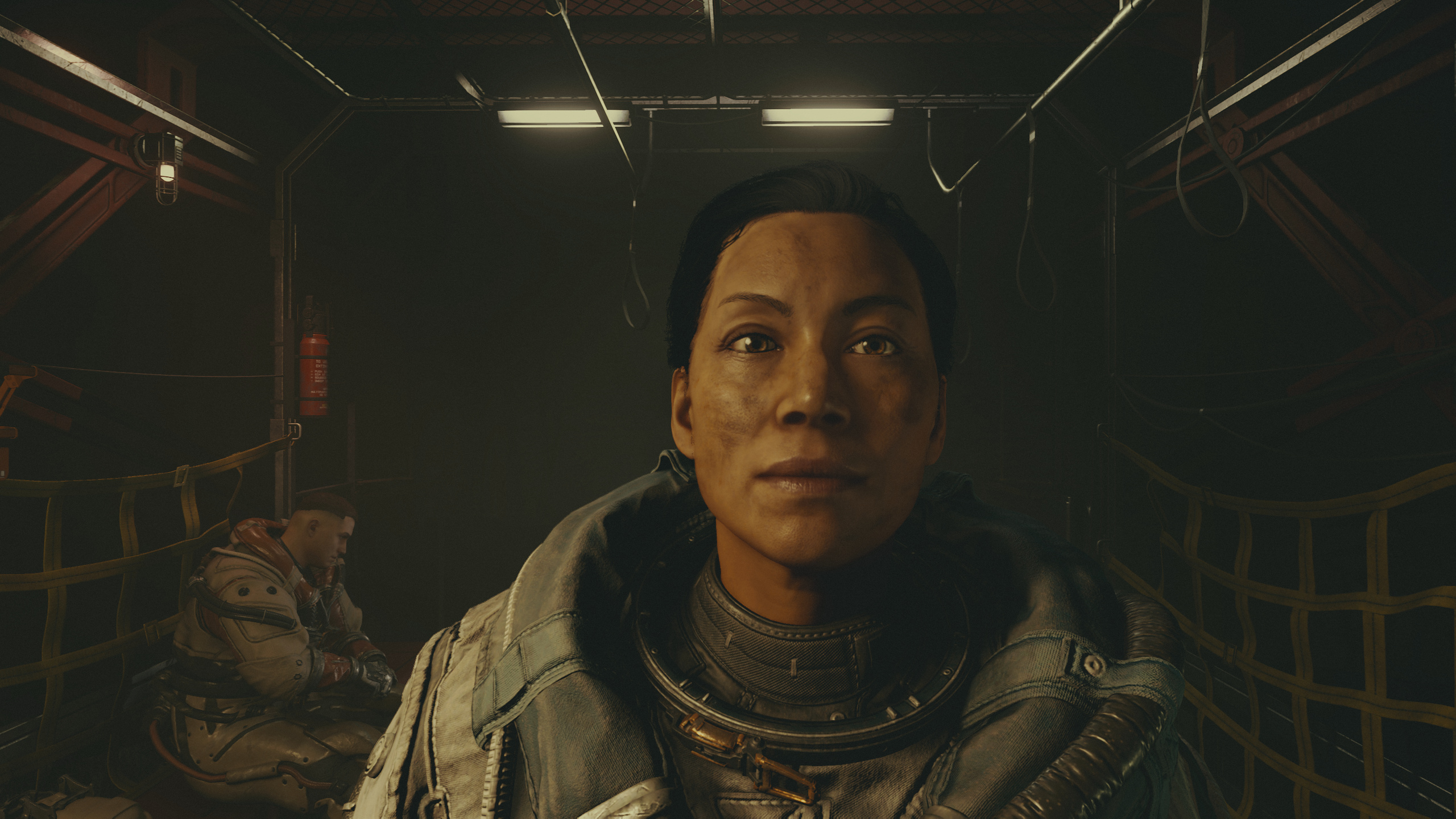
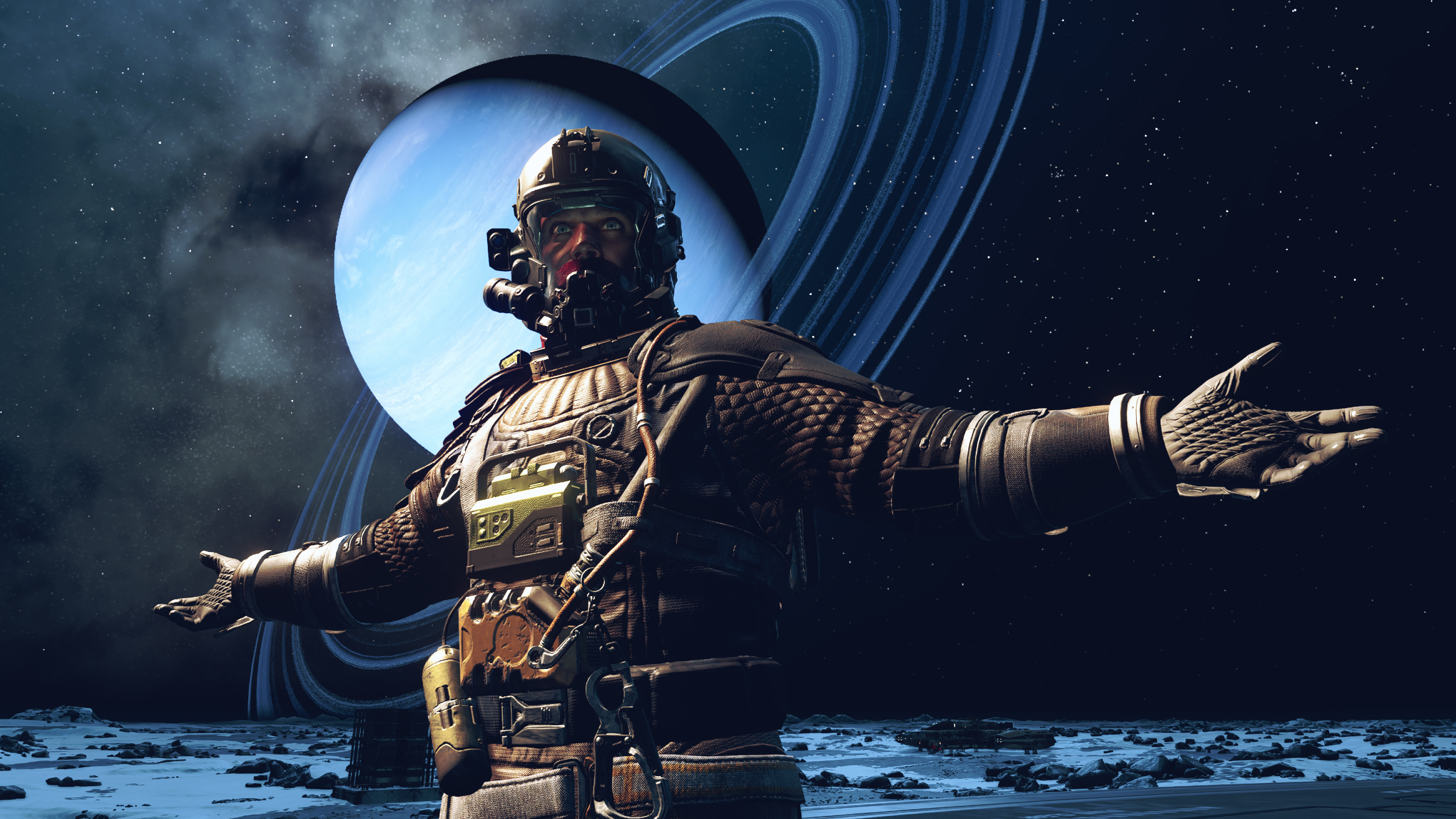
Starfield guide: Our hub of advice
Starfield console commands: Every cheat you need
Starfield mods: Space is your sandbox
Starfield traits: The full list, with our top picks
Starfield companions: All your recruitable crew
Starfield romance options: Space dating
You begin at work, taking an elevator down into a mine while your boss and a colleague have a chat. You follow them as they ramble on about the life of a miner, then you get to do a bit of grunt work. Moments later, you've uncovered a magical artefact, endured a mystical vision and woken up with a hangover. This is where you get to create your character, before you're introduced to your first Constellation buddy—you'll be joining this society of explorers yourself pretty soon. It's a brisk greeting, though, rudely interrupted by a pirate attack. Once they're dealt with, you're given a ship, a robot, and sent on your way.
The pace is wild. The amount of dialogue—which, I should add, does little to set the scene or ground you in the galaxy—makes it feel a bit plodding, but between the artefact, vision, pirate fight, and gift of a second-hand ship, it also spits important shit at you faster than a rapid-fire laser cannon. You go from a miner to a freelance space captain in the length of time it'll take you to eat a large sandwich.
None of it really flows. There are too many cuts as you're dragged from the mine to a base while you're unconscious, or have to go from a port to your ship and then into space. It's chopped up into lots of brief scenes in new locations, never really letting you get your feet before you're sent off on a grand quest—one you're introduced to in a chat that will take about 60 seconds.
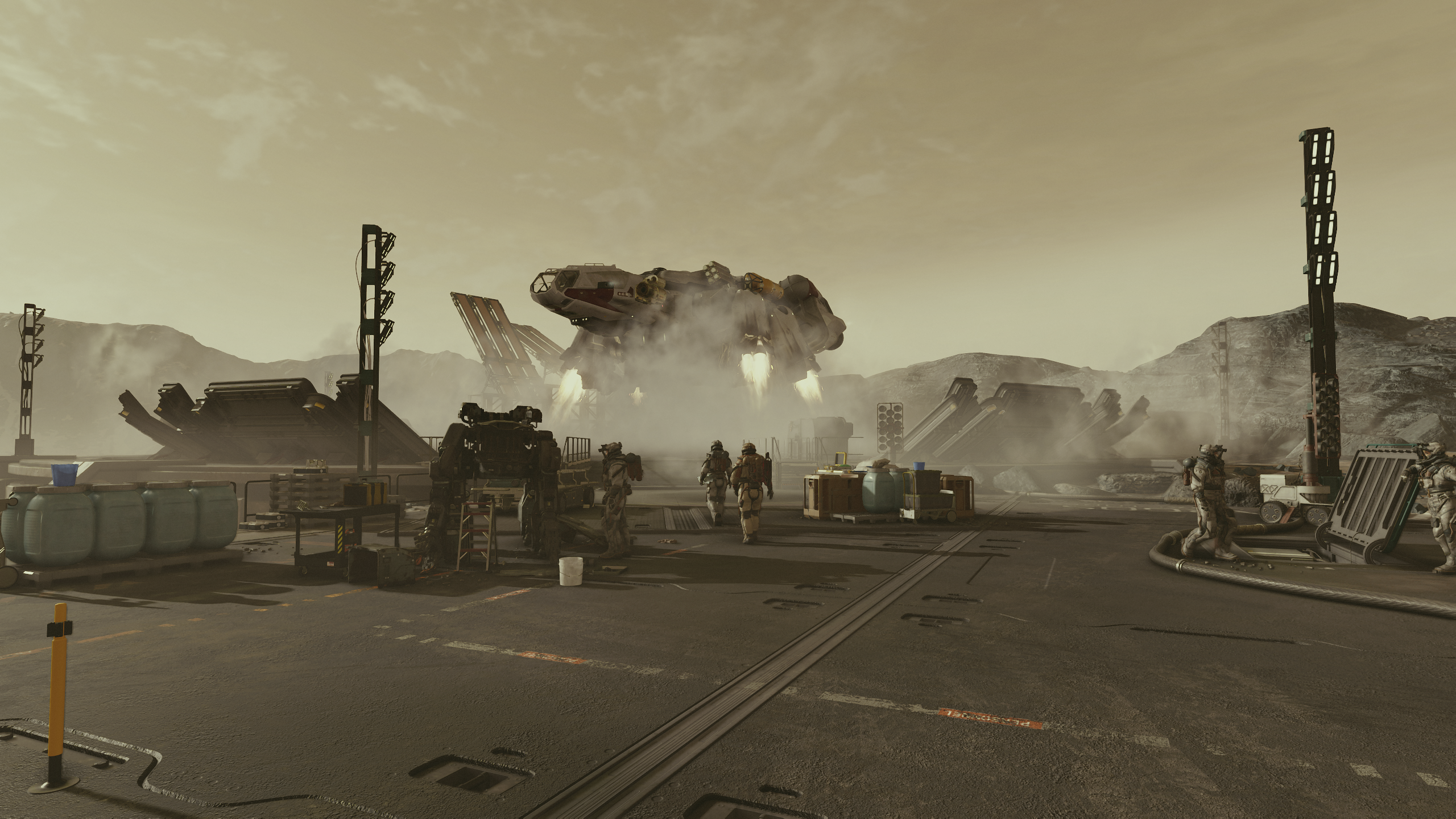
But what's most disappointing is the lack of a "holy shit" moment. You know the kind of thing I'm talking about: leaving the prison in Oblivion and seeing Cyrodiil laid out before you, or walking through the vault door and into the DC Wasteland for the first time. I genuinely don't think I'll ever forget those incredible reveals, but opening the mining base airlock and just seeing a docking area doesn't compare, even if the surging music expects you to be impressed. Nor does loading into space for the first time, which feels oddly perfunctory. Maybe Bethesda was hoping your arrival in New Atlantis, the first settlement you'll visit on your quest, would offer those vibes, but that's undermined by the fact that you essentially fast travel there, selecting it from a menu rather than making the journey yourself.
Starfield's intro is a victim of Bethesda's desire to just get you into space as quickly as possible.
Fallout 3's introduction, I'm convinced, is where Bethesda really peaked. You get to see your whole childhood play out in the vault, which serves as a sort of microcosm of the Wasteland, with its own factions, rivalries and ethical conundrums. By the time you leave, you've already started developing your character and figuring out how you'll make your way through this post-apocalyptic future. It's a long, slow-burning build up, perfectly setting the tone for the huge adventure looming before you. 15 years on, it remains a high point not just for Bethesda RPGs, but RPGs in general.
When it comes to these opening moments, Starfield has much more in common with The Elder Scrolls, where you're a nobody who is quickly tasked with an epic quest. But Oblivion and Skyrim work so much harder to build up to the sandbox reveal, when you're free to chart your own course, and provide so much more context to get you started. Oblivion scores some points for chucking Patrick Stewart in there, but Skyrim's is undeniably the stronger of the two.
Keep up to date with the most important stories and the best deals, as picked by the PC Gamer team.
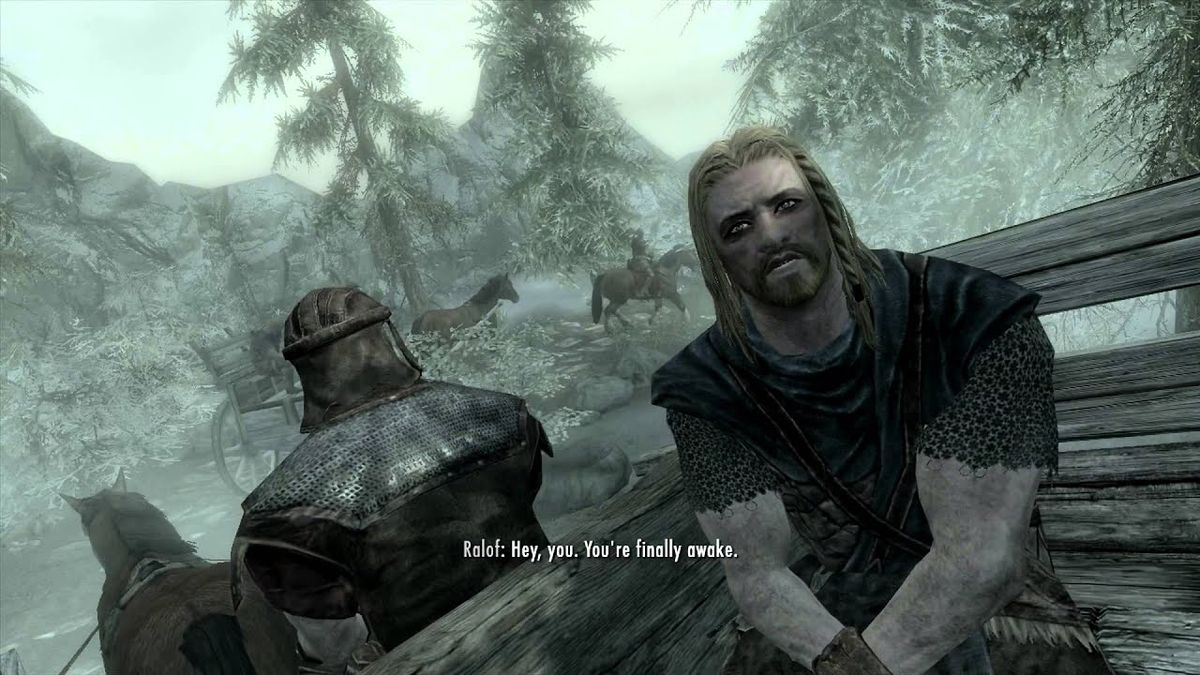
I know that plenty of folk find that wagon-ride at the start a touch boring, but I love it. As you're slowly brought to the site of your soon-to-be-aborted execution, Bethesda effortlessly ramps up the tension, shows off some of the beauty of its Scandinavian-inspired setting and establishes the state of the conflict between the imperials and nords. And then a fucking dragon attacks. Sorry, deadbeat space pirates, you ain't got nothing on that. Instead of a straightforward scrap, you've got to escape a burning town as people die left and right, pick a faction to side with temporarily, and then make your way through a prison and a network of caves, fighting and sneaking your way to freedom.
When you exit the cave, there it is: Skyrim. Verdant forests, intimidating mountains, an awe-inspiring temple ruin that you just know you'll be exploring soon enough. And throughout this initial adventure, you're soaking up so much information about how the game works and what's going on in this war-torn realm. By the time you get to pick a direction and march off to create your own emergent stories, you're well prepared.
Starfield's intro is a victim of Bethesda's desire to just get you into space as quickly as possible, but by doing that it stops us from having our first proper adventure. The climax is literally just shooting some dudes who you will mow down in their thousands before the game is over. And then you have to buzz off to New Atlantis for some long chats with your new colleagues. It doesn't really put its best foot forward.
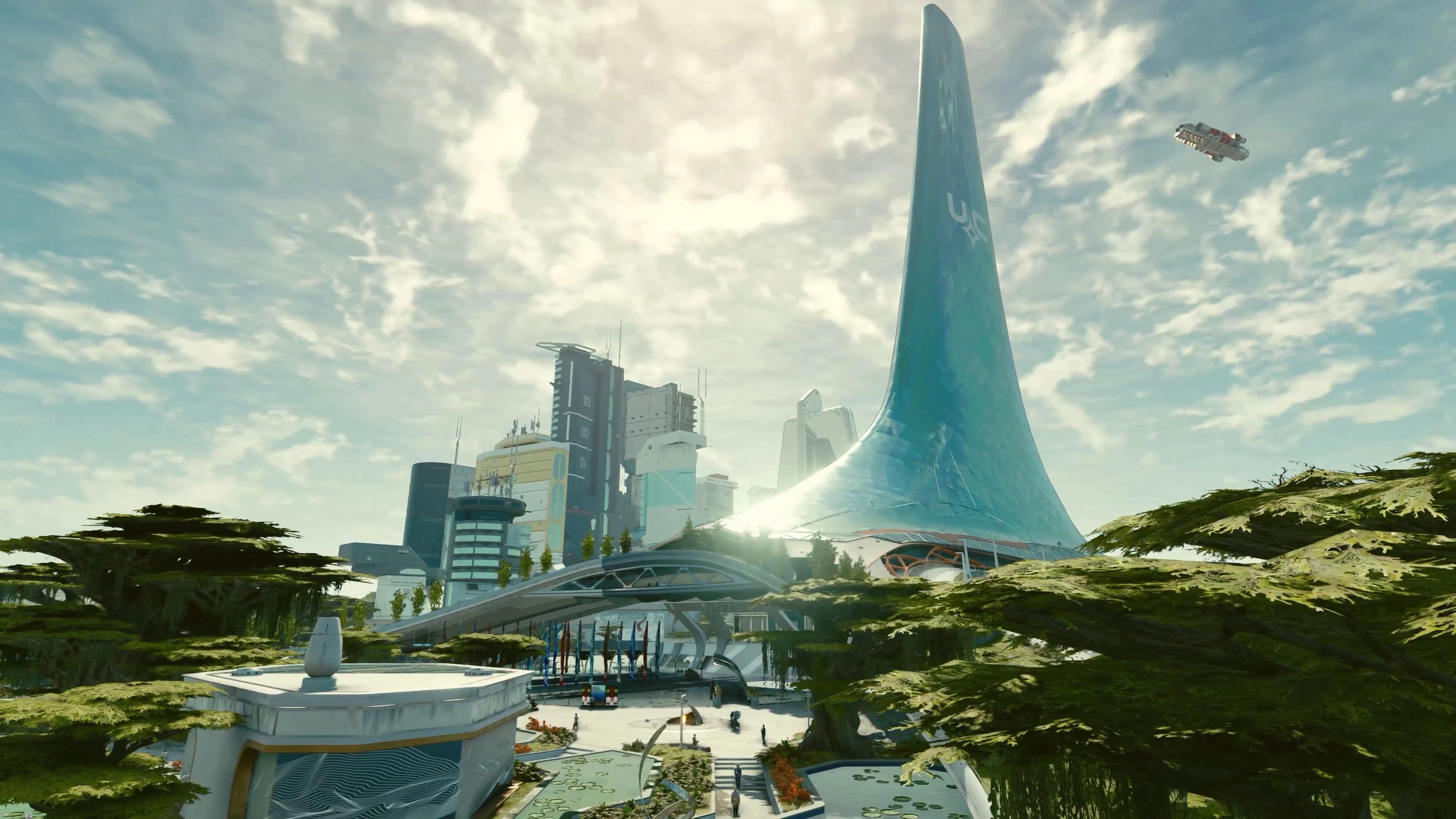
Bethesda intros establish what the games are all about—they're statements of intent. Starfield's only highlights the stuff that makes it fall short of Bethesda's previous games: the dodgy pace of its quests, the abundance of fights against a trio of far-too-similar pirate factions, the way that the galaxy is chopped up into segments separated by loading scenes and brief cinematics. If I was feeling nasty I might suggest that the intro actually does its job perfectly, encapsulating what you can expect from the rest of the game. But that would be unfair. I'm 50 hours in now, and while it is absolutely my least favourite modern Bethesda RPG, not including Fallout 76, it's so much better than this initial misstep suggests.
It is, however, another example of how Bethesda seems to have lost something. All the work that's gone into making it ridiculously massive has come with a cost. For all the classic Bethesda jank filling up The Elder Scrolls and Fallout, within these series are some brilliantly designed RPGs, with nuance and artistry and an understanding of what makes a riveting, well-paced adventure. But just like the intro, so many of Starfield's best quests feel like they're hurtling towards a conclusion so you can move onto the next one, and get back to visiting its 1,000 worlds.

Fraser is the UK online editor and has actually met The Internet in person. With over a decade of experience, he's been around the block a few times, serving as a freelancer, news editor and prolific reviewer. Strategy games have been a 30-year-long obsession, from tiny RTSs to sprawling political sims, and he never turns down the chance to rave about Total War or Crusader Kings. He's also been known to set up shop in the latest MMO and likes to wind down with an endlessly deep, systemic RPG. These days, when he's not editing, he can usually be found writing features that are 1,000 words too long or talking about his dog.

